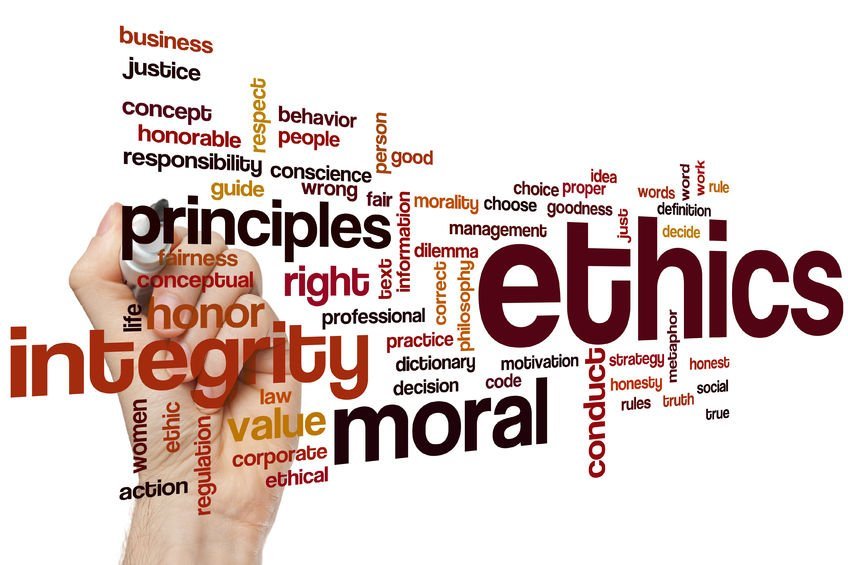 People lie at different times of day more than others and they lie in certain situations (not what you’re thinking) a lot more than you’d guess.
People lie at different times of day more than others and they lie in certain situations (not what you’re thinking) a lot more than you’d guess.
People who lie about “big things” have more challenges than those who have fewer mega-lies.
There is absolutely a distinction in the 50 shades of gray in lying.
“Mom you look beautiful.” Mom is in hospice and has a day or two to live.
A lie? Objectively? Probably? What if the person knows they are lying in this case? It’s still pretty white in my book.
“How do I look in this dress?” This is tricky. If the person looks horrible you probably have to “tell the truth” in an elegant way. But if they’re wearing the dress around the house, and you know they have no intention of wearing it out, you probably won’t lose heaven points on this one.
But what if the person were going out to the big formal ball at the Gala?! Now THIS is interesting because you and I see pictures of celebrities looking horrible because no one in their inner circle was able to say, “Dude, guess again.”
Shades of gray.
“I took the cash you gave me and put it in the Salvation Army bucket.” But they didn’t. They bought themselves dinner and a new hat. That… is a darker lie. It’s still doesn’t feel jet black but it’s almost black.
“But Kev, some people think that all lies are lies.”
That’s fine. Because everyone lies, everyday, and how much and how often is disturbing.
People lie, research has shown, in one-fourth of their daily, social interactions.
And even in the simplest of conversations people lie 3 times about every 15 minutes they are talking with someone.
So not only does your honest friend lie, they lie a lot. Like most people they are probably pretty good at what are known as “low stakes lies.” These are lies where the penalty for lying is pretty benign.
High stakes lies are a different thing of course. “Did you rob the bank?” The person did and he’s on video, so why lie?
Lying is a function of survival.
 I’m a pretty straight shooting person but I confess I think hard before answering important questions if I FEEL one thing and THINK another.
I’m a pretty straight shooting person but I confess I think hard before answering important questions if I FEEL one thing and THINK another.
If I think someone’s project is a great opportunity, I tell them. If I think it sucks, I tell them in a kind way and I tell them why. If I think someone is seriously in harms way, I tell them. When I promote an event, what you read is fact, and for me it has to be.
Most writers have to be careful about what they write because there are laws about saying stuff that is simply not true. And the penalties can be significant.
I predictably will be straight with the world, even if I know it’s going to cost me in some dramatic way. Mostly this is because I was raised to be like a boy scout. I’ve never regretted it in the long run.
People who lie are deceiving another person. Lying implies knowledge of what is true instead of what they are saying.
This is important because most people aren’t all that smart and I give a lot of latitude to people in general because they simply BELIEVE or JUSTIFY their communication and ultimately believe their own lie. This is part of self preservation as well.
A lot of lies are simply errors, or mistakes. And people do need to reconcile errant communication with lying. This is done by saying, “Oh damn, dude, I am sorry, I thought….” If people can’t say they are sorry, you can predict they are walking liars. Human behavior almost requires deception as does every form of life, in order to survive. (I don’t use the word “liar” in the painful way but simply as a descriptor of predictable behavior.)

But for the same reason people use “rules of thumb” (heuristics) to make decisions instead of using their brain power, people who deceive do it as a short cut through a situation. It’s about comfort and familiarity… and quite often literal survival.
I’ve done body language analysis for two decades. That’s a lot. Almost everyone wants to know two things.
“Are they lying?”
“Did they cheat on me?”
That’s why I do a lot less analysis in 2022 than I did in 2008. So rarely did I get an opportunity to say, “man the woman is telling the truth!”
And yet deception takes you further into life as a species and often as a person, especially when the behavior of the individual is deplorable.
That doesn’t mean deception is “morally right,” because that is for YOU to decide, not me.
Everyone needs a well considered CODE of ETHICS, and then you stick to your code. The difficulty of this dictum is that it takes a lot of self regulation units to tell the truth in difficult situations.

Realizing that human memory is largely taken up by a story editing or story deleting function, I don’t expect a lot from most people in what they say. This is not to say that all people are stupid or have bad memories, It means that people are generally average and they have unreliable memories. Combine this with the fact that people lie about 3 times every 15 minutes and I usually estimate that a dramatic portion of what someone says in conversation is not correct. I try NOT to LOOK for the lie.
I generally trust a few types of people. Most Magicians are an example. Magicians are virtually required by trade to give credit where credit is due. They tell you they are going to deceive you. They use your story telling edit device and then fool you. Of course, they’re also the greatest masters of deception on the planet and they will tell you that without hesitation.
I also trust people who say, “here’s what I think….” and then they stop and say, “but I also think…” and it’s the opposite or close to the opposite of the first thing they said. They are VIOLATING the Law of Consistency thus making them a person I trust.
I never trust a politician or ANYONE who says their “position” is the same today that she said about almost any issue 30 years ago. Why?
If she doesn’t have more data than she did 30 years ago, she is flat out uneducated and ignoring data. There are a few exceptions…a few.
Part of cultural lying occurs because of the repetition of the same story over and over again without searching for more information to disconfirm their old beliefs. People believe that there is safety in the same exact story. “…and I have never wavered from this point…”
Wow!

The smartest people I know go looking for more information and doubt, wonder, get more curious and test. Smart people get smart because they know that there is so much more to know. Stupid people (sorry) remain in that state because they behave the same way they always have across a broad range of contexts.
I remember writing an article in college about the need to ban guns in the U.S. I read it the other day and it was fairly well written (poor grammar, well argued). The points were quite good. 20 years later I figured out that I was wrong and incredibly naive. I was looking at specific incidents (John Lennon got shot and so did the President in a short span of time.) instead of intention, purpose, risk/reward at cultural and national level, the rules of a nation, etc. Obviously my belief doesn’t think all guns are good in all people’s hands, everywhere. That would be incredibly unwise. As with most things in life, optimization dwells outside of most people’s beliefs and is reached by valuing behaviors, results and measuring what causes those results.
What I just told you is accurate information. It’s true as I see it. I continue to dig for reasons and consider well presented, even minded and calmly communicated points of view that differ because everyone is standing somewhere on a timeline looking in some direction that is almost certainly different from another nearby person!
Lying is problematic.
Lying about what you did is one thing. Lying about what someone ELSE did, is quite another.
The Bible said it quite well, Don’t lie against your NEIGHBOR. That dictum from the author was in the top 10. It makes a lot of sense when you think about it. Lying about your feelings is your problem. Lying about someone else is a serious problem for them, because they now have a series of problems that are coming there way now or in the future. And they may never recover. Families will be broken, jobs will be lost. Why? Because someone lied about them.
It’s very difficult to defend against a lie that can’t be answered by mathematical calculation of some kind.
“I saw John punch Bill.”
Maybe he did. And maybe he didn’t. Larry’s memory is like almost everyone else’s. It’s iffy at best. He also may have created the story for any of a hundred reasons. But John was taking a walk on the other side of town.
And here’s what is disturbing. What Larry said, will be remembered by many people, months or years later, as another person’s own memory.
Whew!
Who thought lying or not lying but an accusation of lying could be so complicated!?
Let’s sort out one fact today…
Question: Is there a time when folks are even more likely to lie than in 1/4 of all interactions? When is it?
According to Cornell University communications researchers, people are most likely to lie on the telephone.

In fact, the researchers say, phone fibbing is even more likely than when people use e-mail, instant messaging or even speak face-to-face.
“Some psychologists did not expect this. Lies makes us feel uncomfortable, and you would think we should be using media to reduce that discomfort, but that’s not the case,” says Jeff Hancock, Cornell assistant professor of communication.
In a study of 30 students, his research group found that, “People lied most on the telephone and least in e-mail, and that lying rates in face-to-face and instant message interactions were about equal,” he says.
It is the communication technology, he suggests, that affects lying.
Hancock and Cornell graduate students Jennifer Thom-Santelli and Thompson Ritchie are authors of the peer-reviewed study, “Deception and Design: The Impact of Communication on Lying Behavior,” presented April 24-29 at the Computer-Human Interaction (CHI) scientific meeting in Vienna, Austria.
On average, the lies told by the students in the study were trivial, Hancock says. E-mail lies tended more often to be planned, and the lies usually were believed, according to the e-mailers.
Why does the telephone make it easier to tell untruths? “If you called in sick to your boss, but you were dressed and ready to ski, you would succeed in lying on the phone. But if you claimed to be sick in a face-to-face conversation, but you were wearing a ski outfit, you would obviously fail in lying,” Hancock observes.
The telephone, he says, allows people in different physical locations “to communicate with vocal and inflection cues intact, while e-mail and instant messages eliminate or distort nonverbal cues and modify the timing of communication.”
Because the majority of lies are unplanned and tend to emerge spontaneously from conversation, “media where interactions are in real time boost the opportunity for deception,” Hancock says.
“If during a conversation one friend is asked by another what she thinks of his new shirt, and she does not like it, she is now presented with a decision to lie or not,” says Hancock. “This type of opportunity is less likely to arise when composing an e-mail. Thus face-to-face conversation, telephones and instant messages present more opportunity for lies.”
However, if the conversation is on the record, Hancock notes, people are less likely to lie. “Users should be hesitant to lie in a medium where statements are recorded and are easily reviewed,” he says.

Face-to-face and telephone conversations are typically not recorded, while e-mail is often saved by both the sender, receiver and by servers hosting e-mail accounts. Instant-message conversations are logged for the duration of an exchange and can easily be saved.
Participants in the study recorded all social communications for seven days, including how often they lied. The rate of deception was calculated by dividing the number of lies by the number of social communications.
And the Results Showed…
Among 30 students involved in the study, there were 1,198 social communications and 310 lies. On average, participants engaged in 6.11 social communications daily and lied 1.6 times per day, meaning that about 26 percent of the reported social communications involved a lie.
Of the telephone conversations, 37 percent involved deception, while face-to-face conversations included lies 27 percent of the time. About 21 percent of the instant messages and 14 percent of the e-mailing included lies. Hancock also found that experienced e-mail users were more likely to lie more often.
BODY LANGUAGE: Decoding, Interpreting & Mastering Non-Verbal Communication
with body language expert Kevin Hogan
This is a Complete Home Study Course. (A portion of this course is interactive with your computer!)
The Advanced Home Study Course in Analyzing Nonverbal Communication!
When you discover the secrets of body language, you can be the one who:
- Never gets lied to
- Knows when they are attracted to you
- Knows when they are uncomfortable
- Is in control 100% of the time!
The exact same nonverbal communication that gets people to buy from you are the same ones that get them to buy you. Whether you want to master body language to make the sale or get the girl (or guy) this program reveals all the secret codes hidden for so long! Absolutely no one has all of this information. Period. My proprietary research (which you are going to receive!) brings you to the cutting edge of having people fall in love with you in literally a matter of seconds.
You are going to discover what really gets the sale, the promotion, and what seals or kills the deal.
Between 60% and 75% of all of your communication is nonverbal. Are you attracting or repelling people around you? Are you making every sale you could be? How are people reading you?
In the first four seconds people will make judgments about you:
- I will or will not buy from this person.
- I will or will not like this person.
- I find this person kind, or not.
- I find this person intelligent or not.
And now for the most amazing part of the course: 6 CDs and Video are INTERACTIVE with our secret website filled with photographs to analyze!
You move through a catalog of photographs and nuance by nuance analyze the small lines, wrinkles, facial expressions, hand and body placement. All these details are explained to you by body language expert, Kevin Hogan.
The first two introductory CDs are geared toward helping you make an incredible impression in those first four seconds. This advanced portion of the home study course is all about the other person! Now you can discover whether they are lying or not. You can find out the cues of annoyance, covering hidden feelings, and whether they like you or not.
You are going to learn to read people in virtually an instant. Kevin will introduce you to what he does when The New York Post, First for Women, Cosmopolitan, Playboy, The Star, Maxim, Success, Selling Power and the rest of the media call!
Over the past two years we’ve collected over 100 pictures of celebrities that he has analyzed for the media. Jennifer Lopez, Ben Affleck, Bill Clinton, Hillary Clinton, Chelsea Clinton, Angelina Jolie, Arnold Schwarzenegger, Maria Shriver, Faith Hill, Tim McGraw, The Sex and the City girls, Drew Barrymore, Kurt Russell, Goldie Hawn, Beyonce Knowles, Liz Hurley, Pamela Anderson, Stephen Spielberg, and dozens more.
As you progress through the course, you will become proficient at reading and analyzing body language! And of course, I’m giving you the keys to my password-protected secret website with over 100 photos of the stars ready to analyze!
This is a complete seminar in reading, decoding and interpreting body language from the source. Nothing is missing and YOU have access!
You will receive my complete analysis of EVERY PHOTOGRAPH on Six (6)additional Digital Audio CDs (8 total in this course!) Your Secret Password to the Hidden Website for the Interactive Photo Gallery will come with your package.






















